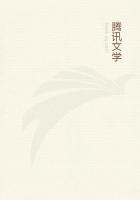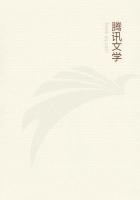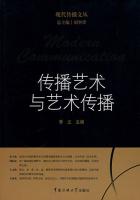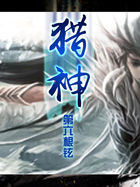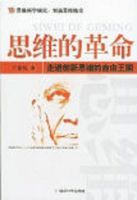INTRODUCTION.
Pope's life as a writer falls into three periods, answering fairly enough to the three reigns in which he worked. Under Queen Anne he was an original poet, but made little money by his verses; under George I. he was chiefly a translator, and made much money by satisfying the French-classical taste with versions of the "Iliad" and "Odyssey." Under George I. he also edited Shakespeare, but with little profit to himself;for Shakespeare was but a Philistine in the eyes of the French-classical critics. But as the eighteenth century grew slowly to its work, signs of a deepening interest in the real issues of life distracted men's attention from the culture of the snuff-box and the fan. As Pope's genius ripened, the best part of the world in which he worked was pressing forward, as a mariner who will no longer hug the coast but crowds all sail to cross the storms of a wide unknown sea. Pope's poetry thus deepened with the course of time, and the third period of his life, which fell within the reign of George II., was that in which he produced the "Essay on Man," the "Moral Essays," and the "Satires." These deal wholly with aspects of human life and the great questions they raise, according throughout with the doctrine of the poet, and of the reasoning world about him in his latter day, that "the proper study of mankind is Man."Wrongs in high places, and the private infamy of many who enforced the doctrines of the Church, had produced in earnest men a vigorous antagonism.
Tyranny and unreason of low-minded advocates had brought religion itself into question; and profligacy of courtiers, each worshipping the golden calf seen in his mirror, had spread another form of scepticism. The intellectual scepticism, based upon an honest search for truth, could end only in making truth the surer by its questionings. The other form of scepticism, which might be traced in England from the low-minded frivolities of the court of Charles the Second, was widely spread among the weak, whose minds flinched from all earnest thought. They swelled the number of the army of bold questioners upon the ways of God to Man, but they were an idle rout of camp-followers, not combatants; they simply ate, and drank, and died.
In 1697, Pierre Bayle published at Rotterdam, his "Historical and Critical Dictionary," in which the lives of men were associated with a comment that suggested, from the ills of life, the absence of divine care in the shaping of the world. Doubt was born of the corruption of society; Nature and Man were said to be against faith in the rule of a God, wise, just, and merciful. In 1710, after Bayle's death, Leibnitz, a German philosopher then resident in Paris, wrote in French a book, with a title formed from Greek words meaning Justice of God, Theodicee, in which he met Bayle's argument by reasoning that what we cannot understand confuses us, because we see only the parts of a great whole. Bayle, he said, is now in Heaven, and from his place by the throne of God, he sees the harmony of the great Universe, and doubts no more. We see only a little part in which are many details that have purposes beyond our ken. The argument of Leibnitz's Theodicee was widely used; and although Pope said that he had never read the Theodicee, his "Essay on Man" has a like argument. When any book has a wide influence upon opinion, its general ideas pass into the minds of many people who have never read it. Many now talk about evolution and natural selection, who have never read a line of Darwin.
In the reign of George the Second, questionings did spread that went to the roots of all religious faith, and many earnest minds were busying themselves with problems of the state of Man, and of the evidence of God in the life of man, and in the course of Nature. Out of this came, nearly at the same time, two works wholly different in method and in tone -- so different, that at first sight it may seem absurd to speak of them together. They were Pope's "Essay on Man," and Butler's "Analogy of Religion, Natural and Revealed, to the Constitution and Course of Nature."Butler's "Analogy" was published in 1736; of the "Essay on Man," the first two Epistles appeared in 1732, the Third Epistle in 1733, the Fourth in 1734, and the closing Universal Hymn in 1738. It may seem even more absurd to name Pope's "Essay on Man" in the same breath with Milton's "Paradise Lost;" but to the best of his knowledge and power, in his smaller way, according to his nature and the questions of his time, Pope was, like Milton, endeavouring "to justify the ways of God to Man." He even borrowed Milton's line for his own poem, only weakening the verb, and said that he sought to "vindicate the ways of God to Man." In Milton's day the questioning all centred in the doctrine of the "Fall of Man," and questions of God's Justice were associated with debate on fate, fore-knowledge, and free will. In Pope's day the question was not theological, but went to the root of all faith in existence of a God, by declaring that the state of Man and of the world about him met such faith with an absolute denial. Pope's argument, good or bad, had nothing to do with questions of theology. Like Butler's, it sought for grounds of faith in the conditions on which doubt was rested. Milton sought to set forth the story of the Fall in such way as to show that God was love. Pope dealt with the question of God in Nature, and the world of Man.

